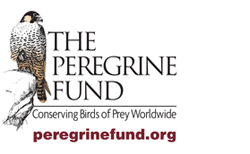Clive MannSimon,As with falconry, netting would not work if you have huge numbers of Quelea. Think of using a butterfly net against a plague of locusts.On 29 October 2017 at 13:55, Simon Ball <sball@africaonline.co.ke> wrote:What about netting the quelea?
Sent from my iPhone
On 29 Oct 2017, at 14:28, Clive Mann clivefmann@gmail.com [kenyabirdsnet] <kenyabirdsnet-noreply@yahoogroups.com > wrote:Clive MannJamie,Falconry couldn't work when huge numbers of Quelea are involved.--On 28 October 2017 at 22:29, James Christian karisiasafaris@gmail.com [kenyabirdsnet] <kenyabirdsnet-noreply@yahoogroups.com > wrote:Paula,Wouldn't falconry be the most effective? It could employ local people and local birds who might become ambassadors for their environment. Gadgets and tech are neat and always make the papers but I tend to think old-school approaches are almost always the best approach to wildlife issues like this.Cheers, JamieOn Sat, Oct 28, 2017 at 4:29 AM, Paula Kahumbu pkahumbu@gmail.com [kenyabirdsnet] <kenyabirdsnet-noreply@yahoogroups.com > wrote:Hi GuysI wonder if any experts on Quelea would be willing to participate in a brainstorming with Kenyan creatives (engineers, techies and makers) to come up with some innovative ideas?RegardsPaulaOn Tue, Oct 24, 2017 at 10:04 AM, Kariuki Ndang'ang'a <ndanganga@yahoo.com> wrote:Hi AllI'd like to alert you to the fact that coincidentally during the Pan African Ornithological Congress in Arusha 2012, I met Clive Eliot, one of the authors of the book titled "Quelea quelea Africa's Bird Pest". He gave me a copy (see attached Table of Contents) and although published a while ago, it has interesting insights on the ecology of the bird and some methods used to control it. I'll commit to reading it more comprehensively but welcome others too (directly get in touch to make arrangements of accessing it) in order to explore what can be trialed locally and how. If anyone is interested, we can form a small team to explore long-term possibilities....KariukiOn Monday, October 23, 2017, 10:06:58 PM GMT+3, Paula Kahumbu pkahumbu@gmail.com [kenyabirdsnet] <kenyabirdsnet-noreply@yahoogroups.com > wrote:It's fascinating that the extermination of sparrows in China in 1958 to protect rice crops led to an explosion of locusts which the sparrows also ate. This in turn led to even greater loss of crop and it exacerbated the great famine in China that led to the death of up to 45 million people due to starvation.This is a lesson we can ill afford to repeat the mistakes of China. I wonder if we have any ornithologist experts on quelea who might tell us what the likely ecological consequences are of eliminating queleaRegardsPaulaOn Sun, Oct 22, 2017 at 7:31 PM, David Guarnieri dvguarnieri@me.com [kenyabirdsnet] <kenyabirdsnet-noreply@yahoogroups.com > wrote:Hi All,
I drove through Mwea today on the way back to Nairobi from Castle Forest. I didn’t notice anything unusual from the road. I saw plenty of cattle egrets, kingfishers, lapwings and other waders in rice fields. I didn’t see any dead birds near the road. I didn’t see any large flocks of queleas or other smaller birds either.Cheers,DavidSent from my iPhone
On Oct 20, 2017, at 2:20 PM, Darcy Ogada ogada.darcy@peregrinefund.org [kenyabirdsnet] <kenyabirdsnet-noreply@ yahoogroups.com> wrote:Hi Jamie,I think this is what you were referring to in regards to raptor deaths from Quelea poisoning.By the way, did anyone make it to Mwea?Cheers, DarcyDarcy OgadaOn Wed, Oct 18, 2017 at 5:04 PM, 'Heather Elkins' rhminkins@gmail.com [kenyabirdsnet] <kenyabirdsnet-noreply@ yahoogroups.com> wrote:I read some time ago about a guy in Tanzania who does just that – sells (and exports) Quelea as a specialized food.
Best wishes
Heather
From: kenyabirdsnet@yahoogroups.com [mailto:kenyabirdsnet@yahoogro ups.com] On Behalf Of Fleur Ng'weno fleur@africaonline.co.ke [kenyabirdsnet]
Sent: Wednesday, October 18, 2017 12:07 PM
To: Paul Matiku; Kariuki Ndang'ang'a; kenyabirdsnet@yahoogroups.com
Cc: Francis Gakuya
Subject: Re: [KENYABIRDSNET] Re: mwea avian pest control
Yes!
Since we are being encouraged to eat insects for food security (I’m all for it), we should also look to eating quelea – nice grain-fed birds.
But many people think it is a “slippery slope” to encourage the eating of any birds. So this has not moved forward.
Best wishes, Fleur
On 10/17/17 3:00 PM, "Paul Matiku" <matiku@naturekenya.org> wrote:Fleur,
We have never had a solution to offer to those who control bird pests particularly quelea. The best way out would be if we could find a way of getting queleas to be exploited commercially.
Dr. Paul Matiku
Executive Director, Nature Kenya (the EANHS)
P.O. Box 44486, 00100, Nairobi; e-mail: matiku@naturekenya.org; web: www.naturekenya.org <http://www.naturekenya.org/>
Tel 3537568, 0771343138, 0751624312, 0750149200; skype: paul.matiku
Connecting Nature and People since 1909. Join Nature Kenya to save species, protect sites and habitats, empower people and promote ecological sustainability.
How Nature Kenya Works: Nature Kenya’s work is firmly based on partnership, science and action. We use the best available science to inspire positive action for biodiversity by and for partners—Government, local communities and private sector. Nature Kenya takes practical action. We work with and for people – to improve their quality of life alongside, and as a result of, nature conservation. We collaborate with others wherever possible, at local, national, regional or global levels, linking with community groups, governments, businesses, universities, civil society groups and notably BirdLife International to increase the impacts of our efforts. As BirdLife International in Kenya, we implement the BirdLife Strategy—integral to the Nature Kenya strategy.
From: Fleur Ng'weno [mailto:fleur@africaonline.co. ke]
Sent: Tuesday, October 17, 2017 12:26 PM
To: Kariuki Ndang'ang'a; kenyabirdsnet@yahoogroups.com
Cc: Paul Matiku; Francis Gakuya
Subject: Re: [KENYABIRDSNET] Re: mwea avian pest control
Looks like the birds were sprayed over the weekend (see clipping attached)
On 10/16/17 6:49 AM, "Kariuki Ndang'ang'a ndanganga@yahoo.com [kenyabirdsnet]" <kenyabirdsnet-noreply@yahoogr oups.com> wrote:
For your information, page 46 of this document in the following link talks a bit about minimising risks from quelea poisoining:
http://migratorysoaringbirds.u ndp.birdlife.org/sites/default /files/msb_project_agro- chemical_guidance_.pdf
<Raptor deaths as a result of poisoning quelea in Kenya Thomsett 1987.pdf>--James Christian
Karisia Walking SafarisDr C F Mann FLS
--Dr C F Mann FLS
